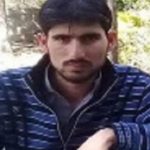Reuters photo
By
Irfan Khan
Pakistan is a country blessed with a geostrategic-important location, naturally ideal weather, intellectuals’ minds and vivid cultural diversity. But the country ruling machinery is always being backed by the military due to a fragile democracy and bad governance system. In principle, the nation should decide the appetite of the military, but it is the military that sets the ways people must live.
PTI
The current ruling party, Pakistan Tehreek-e-Insaf (PTI) are being contentiously criticized by critics for not delivering alleviation to the masses. The July 2018 election won by the PTI was assumed the military’s overturn, which some political leaders called the ‘invisible forces’. However, cases are running in the National Accountant Bureau (NAB) on venal politicians for their corrupt practices and money laundering. This is the only thing that seems advantageous to the fate of the country in the future. The promised reforms by the PTI in various sectors could not be initiated. Pakistan’s government structure is parliamentary, which believes in a democratic culture. If Imran Khan won the election based on democracy and believing in a parliamentary form of government, then what hinders him to sit in parliament? No legal bill was passed by the parliament in his regime.
Country Political Elite
The political business remained in the hands of landlords or feudals, military, religious, bureaucrats and industrialists since independence in 1947 from the British. These ruling elite were created by the British. The power is gifted to i). the governing elite at the centre, in the form of a Prime Minister and his cabinet; ii). the aforementioned landlords or feudals, military, religious, bureaucrats and industrialists; iii). the middle class, comprises of doctors, professors, etc. and iv). the masses.
The Pakistan People Party (PPP) was founded by the landlords, whose representatives always claimed that it is a truly democratic party upholding the rights of common people. The Pakistan Muslim League-N (PML-N) was founded by the industrialists with the assistance of the military. In this way, these elite came in governing Pakistan and worked for their own business in the country and aboroad through the lens of the party manifesto while the masses were gifted rumours, appeasement and rhetoric speeches.
Socio-economic class
The country on one side, ruled by the elites, are highly backed by the military for their own privileges. With this school of thought, the three-socio-economic classes exist in Pakistan. i). landlords or feudals, bureaucrats, industrialist and politician emerge from this class; ii). military and; iii). the common masses. The first class enjoys sophisticated health, education and other facilitates on their own, in the country and abroad. The second class also receives favors on the premise of significant budgets reserved for them. The third class is truly a third class, not even meeting basic health, food, and education rights. Last year Pakistan was declared the second largest country in the world in terms of out of school children, whose number is 22.6 million. The propensity for illiteracy is greater towards girls, 12 million (53%) of the total. The majority of the illiterate community belong to the third class just mentioned. Twenty one million people did not have access to clean and drinkable water.
Freedom of expression
If some journalist, TV anchor, activist, or common citizen raises a voice for their basic rights or improvement of institutions, then they are considered to be bigots and an enemy of Muslims and Islam, of the country and the military. And hence they are threatened, rebuked and disparaged. I used to hear statements such as ‘Pakistan is in danger, Islam is in danger, Muslims are in danger, India is our enemy, the West is our enemy.’ These lessons are what the first two classes have taught to the third class in order to rule the country with impunity.
The Religion card
Several Islamist political parties also coexist. Whenever necessary, the political elite and military have been bolstering clashes among them for their own interest. On some occasions, a specific party will use any Islamist political party for their political will or to undermine another rival party. Again, the task is assigned to the third class and they come in protesting, or different sects fight with each other.
Still hope
The current Prime Minister Imran Khan is a visionary leader and understands and deters socio-economic disparity. The people still have hope in his manifesto. So, Imran Khan should focus on the sectors of the common people and if possible translate budgets from the aforementioned two classes to the third so that the life standard of individuals can be alleviated.
Irfan Khan
I write in Daily Time, Eurasia Review, Modern Diplomacy and others, on Asian Politics, Human Rights and Islamic and Jewish theology. Email:[email protected]



No Comments Yet!
You can be first to comment this post!